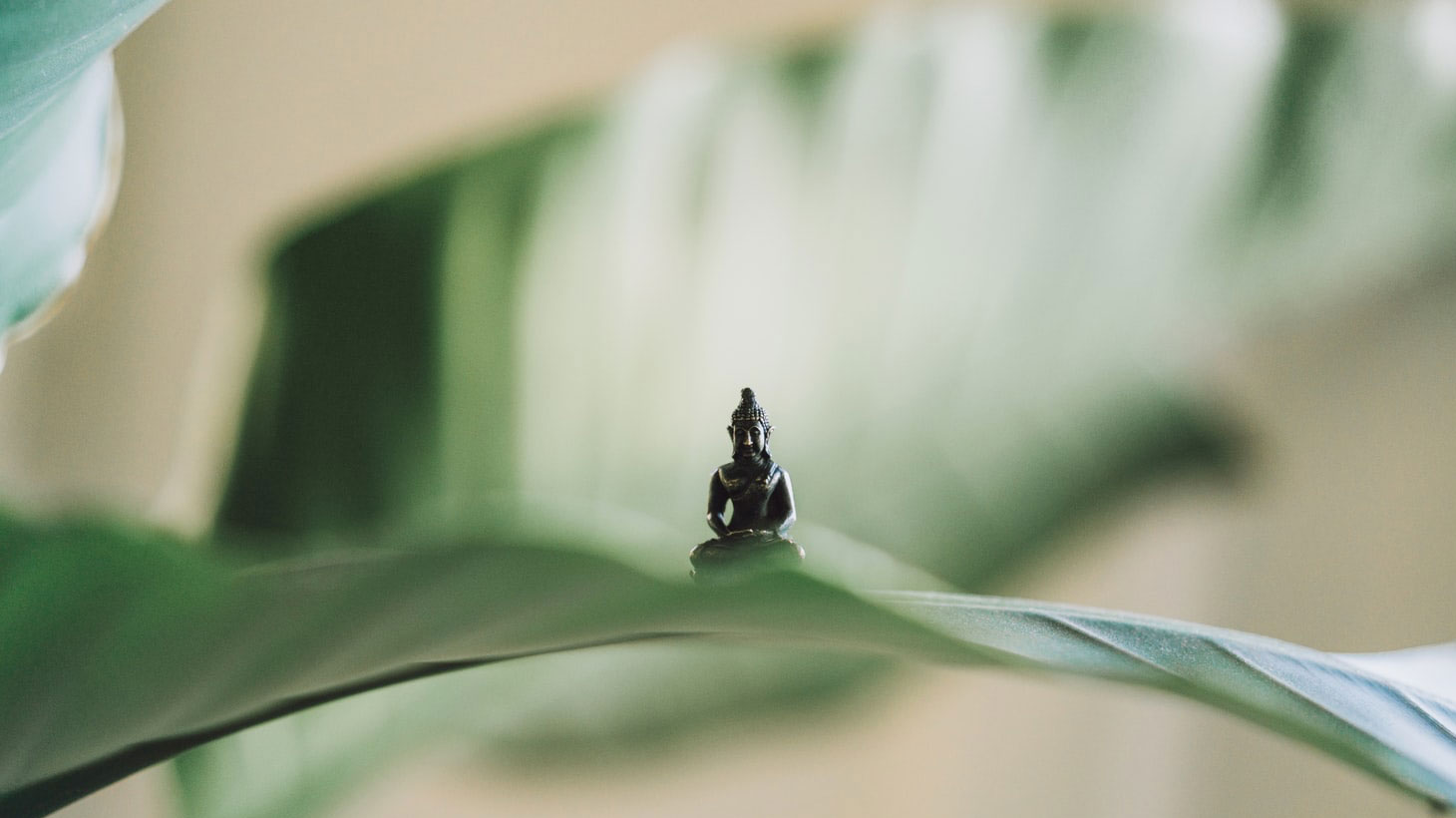
Yoga Teachers & Money: A Look at our Limiting Beliefs
Yoga teachers often have the mistaken idea that because yoga is an ancient and sacred practice, it should be offered for free. Also often associated with teaching is the idea that we should live hippy-like lifestyles, where all we need is a place to co-live in and a patch to grow our vegetables. But teaching yoga is a profession, an activity some of us will spend our lifetimes dedicating ourselves to. And in our world, we need money to live in order to make it a sustainable professional practice.
Western societies, especially those with the highest GPDs, have forgotten what it means to relax, to rest, to move every day, to take time to learn, think, study, and simply breathe.
In this article, you’ll read about how the capitalist system has us think and perceive money, then a word on why our work matters followed by 4 common limiting beliefs and finally, resources to look at your relationship with money.
The Capitalist Mindset
The large part of our world has come to value money over any other kind of object/currency. A country’s place in the world is determined by its GDP—in other words, its ability to bring money into the world—and deemed successful are those who decide to spend their days at usually stressful jobs where productivity is key.
If qualities valued at work/in the work sphere could be ordered in a list of priorities, creativity and art would be shamelessly put at the bottom of the pile. The most abundant salaries are given to those who occupy positions with responsibilities considered important within a company or a society. Extra points to those who directly deal with money or real estate property.
Yoga teachers, like the rest of the educational body, have to make do with what society thinks their work deserves.
Although this isn’t a very optimistic way to see our situation, we have to be realistic: our modern, Western societies, especially those with the highest GPDs, have forgotten what it means to relax, to rest, to move every day, to take time to learn, think, study, and simply breathe. Aren’t those things what we do in yoga?
Our Work Matters
Our work as yoga teachers, movement facilitators, and overall educators is crucial to our world. One of the reasons I believe yoga has become so popular in wealthy English-speaking countries is because that’s where they’re the most needed. Every time new students come in to attend our classes or take the workshops our yoga studio offers, we should be celebrating and use this as our primary energy fuel.
But it’s not the only fuel we need. To be able to continue doing that, it would be irresponsible to think we can only live off the joy that teaching brings us. We need to buy clothes, put food on the table, pay our bills, and be able to afford everything we consider basic necessities to fuel our well-being and our work. If traveling or paying a monthly membership at your local gym is essential to your well-being and feeds your work, then it is necessary, and so is the money to pay for it.
Common Limiting Beliefs Around Money
Limiting beliefs are all the ideas we have that prevent us from living freely and receiving what we truly long for and need. They can be around money, of course, but they can apply to our ability to have fulfilling friendships or how capable we are of hiking to the top of a beautiful mountain. In our heads, limiting beliefs might sound like “I’m too weird for people to see my true colors and love them” or “I’m never been much of a sports person.”
Now that we’ve established how necessary our work is and that we do, indeed, need money to be able to sustain it, let’s have a look at common limiting beliefs that, when it’s time to ask for money, will prevent us from receiving it.

Wanting money is greedy
Again, because of the way our world deals with money, we’re used to thinking that anyone who has money is necessarily evil, selfish and that they don’t really need it. God forbid yoga teachers need money! They must feed off rainbows and divine waters and accept that if money isn’t flowing in their wallets, then it must be a sign of the universe/karma/some hidden message sent from the Hindu gods. But money is necessary; that’s how we exchange. It’s the easiest way to get paid for our services so we can then provide and pay for services others offer (the farmer who planted tomatoes and potatoes, the shop owner who sells those products, and so on).
Money isn’t important
Not only is money important, but it is absolutely necessary. For fear of sounding like a broken record, I must say it: money is how we navigate the world today. Until we find a better way to exchange goods, it’s the only way we can get food from the grocery store and pay our rent and bills. Money is a priority, not as a value like presence or compassion or kindness, but as something that will help us, through what it can buy, prioritize what truly matters to us.
How can you focus on giving love to your students if you teach on an empty stomach?
Overworking myself is the only way to get the money I need
This is yet another way capitalism has made our way into our minds and taught us that this—capitalism—is the only way we should perceive and live our realities. Capitalism supposes that productivity equals money; surely, the more we work, the more money we’ll make. But this is only true for machines, not humans. Humans need sleep, time off, moments to breathe, learn, explore, to spend quality time with family and friends. Overworking ourselves isn’t the solution.
We can only be rich or poor
We’ve also come to believe that there is no in-between: we can either struggle with money or enjoy everything—and more—we need. This is a problem because it means that we’ll want to aim for our teaching endeavors to make us richer than necessary—that’s time we might prefer to dedicate to the activities that fulfill us besides our work. Studies have shown though, that after a certain level of income, happiness doesn’t increase along with numbers shown on salary checks. What we need to have in mind is the amount of money we need to cover our basic needs.
Those are only 4 of the many limiting beliefs we have around money. Now let’s explore yours.
Resources to Explore your Own Limiting Beliefs
If you’re truly willing to work around your money mindset, then there’s a bit of work to do. If your plan is to live a fulfilled life doing what you love with the comfort you need, then there is no time to waste. Get comfortable, grab your favorite drink, a notebook and a pen, and write the following questions down.
Articles with journaling prompts:
- 20 Journaling Prompts to Improve Your Relationship with Money from the Becoming Who You Are blog. It covers the basic questions you want to know the answers to.
- Prompts to Untangle the Negativity We Have Towards Money by Liz McLardy. This focuses on the moments and ways money brings you joy (perfect to let go of limiting belief #1)
- Creative Journal Prompts for Growing Money, Abundance, and Possibility from The Creative Dream Incubator blog. Andrea, the writer, also shares interesting thoughts on the way our world perceives money (written in 2014 but unfortunately still accurate today!).
2 books to consider:
This book is about finding your ‘passion,’ making your creative endeavors, or the thing that you really want to do your work. In there, you’ll find a part about money and guidelines to explore your beliefs (like how much is basic necessities and how much is not really).
- You Are a Badass at Making Money by Jenn Sincero.
Jenn Sincero’s sense of humor and no-BS approach will inspire you to look at your own limiting beliefs around money and encourage you to take action to let them go.
Money is not evil, unimportant, or greedy. It’s the current way we exchange goods so we can live with our basic necessities covered and to keep our happiness levels high. If you plan on living off your yoga teaching endeavors, then it is absolutely necessary to reframe the way you perceive money. Happy exploring!






